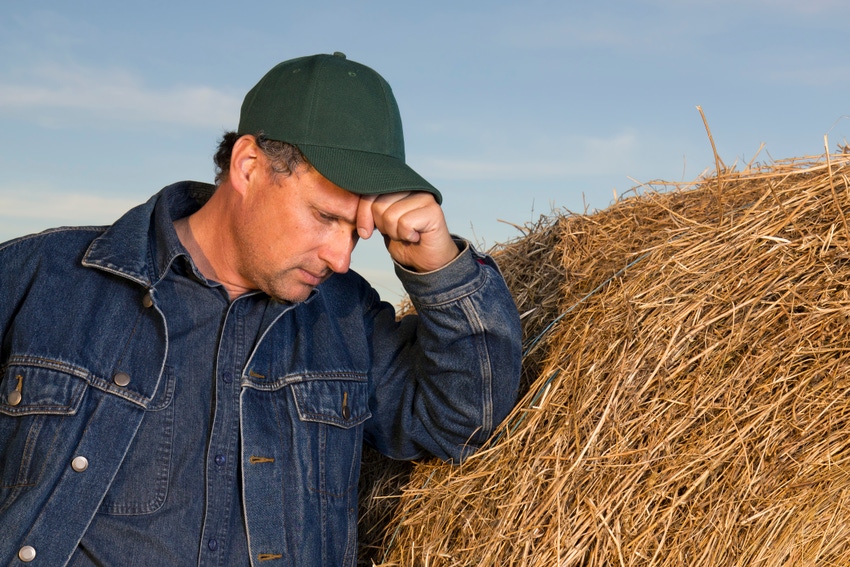
Farmers and ranchers deal with overwhelming stress from market fluctuations, crop failures, the vagaries of weather, injuries and other setbacks that can lead to depression and too often suicide.
Farmers commit suicide twice as much as the general population – 36 per 10,000 people rather than 18 per 10,000, according to the Centers for Disease and Control and Prevention. And farmer suicide is on the rise.
QPR (Question, Persuade, Refer) – a new program from Oregon State University Extension Service – teaches farmers, ranchers and their family and friends how to interrupt the process that leads to suicide, according to Cassie Bouska, assistant professor in the OSU College of Agricultural Sciences.
“Many farmers have poor financial situations that have been going on for years and years,” Bouska said. “They’re faced with the idea or the reality that they might have to walk away and do something else. These are farms that have been in their family probably for generations. That creates its own set of stressors and burdens on people’s hearts and minds.”
The pandemic has added another layer of stress and some farmers and ranchers are looking at even more dire situations that can bring on depression and other mental health issues. OSU Extension is in a good position to help because Bouska and her colleagues work daily with people in the agriculture sector.
“We’re on their farms,” she said. “We’re out there working with them, engaging them. So, we have a good pulse on the community and we’re a trusted resource.”
Building on that trust, QPR helps break through the barriers of generations of people maintaining a tough front to world. The people who need intervention the most are those who won’t ask for help, Bouska said. But with the right approach, people can be reached, said Julie Leep, education program assistant for the program.
“We think that if a person decides to commit suicide there’s nothing anyone can do to stop them,” Leep said. “That’s a myth. The fact is, suicide is the most preventable kind of death and almost any positive action can save a life.”
Webinars offered
To train people to be that positive force, OSU Extension is offering a series of webinars through June teaching the evidenced-based QPR program. Participants learn to recognize the signs of suicide and question someone in crisis, persuade them to seek help and refer them to a hospital, counselor or other resources to get the help they need.
The Farm and Ranch Stress Assistance Network website includes a list of the signs and symptoms of stress and suicide – withdrawal from others, giving away precious possessions, depression, drug or alcohol abuse, or decline in the care of livestock, farmstead appearance and personal care. A helpful brochure can be downloaded.
When approaching someone showing signs of distress, the approach can be direct or indirectly lead into a conversation about how they are dealing with life. Once talking, offer them help and hope by listening and referring them to professionals.
“It’s a dangerous job,” Bouska said. “There are a lot of farm accidents with all the machinery they work on. They’re typically self-employed and that comes with its own level of stress. These are farms that may have been in families for generations and being the one to walk away just burdens people’s hearts and minds as they’re trying to navigate life.”
QPR isn’t counseling, but rather training people to be a safety net for high-risk people in their own environment, Bouska said. The end result is to get them help.
“Anyone can use it,” she said. “We hope people will use it. It offers hope through positive action.”
OSU is part of four regional Farm and Ranch Stress Assistance Network entities across the United States funded by the U.S. Department of Agriculture National Institute of Food and Agriculture. OSU and Washington State University lead the Western Regional Agricultural Stress Assistance Program.
Source: Oregon State University Extension, which is solely responsible for the information provided and is wholly owned by the source. Informa Business Media and all its subsidiaries are not responsible for any of the content contained in this information asset.
About the Author(s)
You May Also Like




